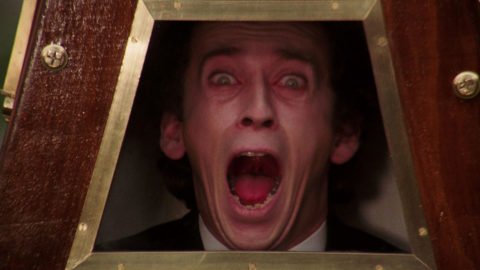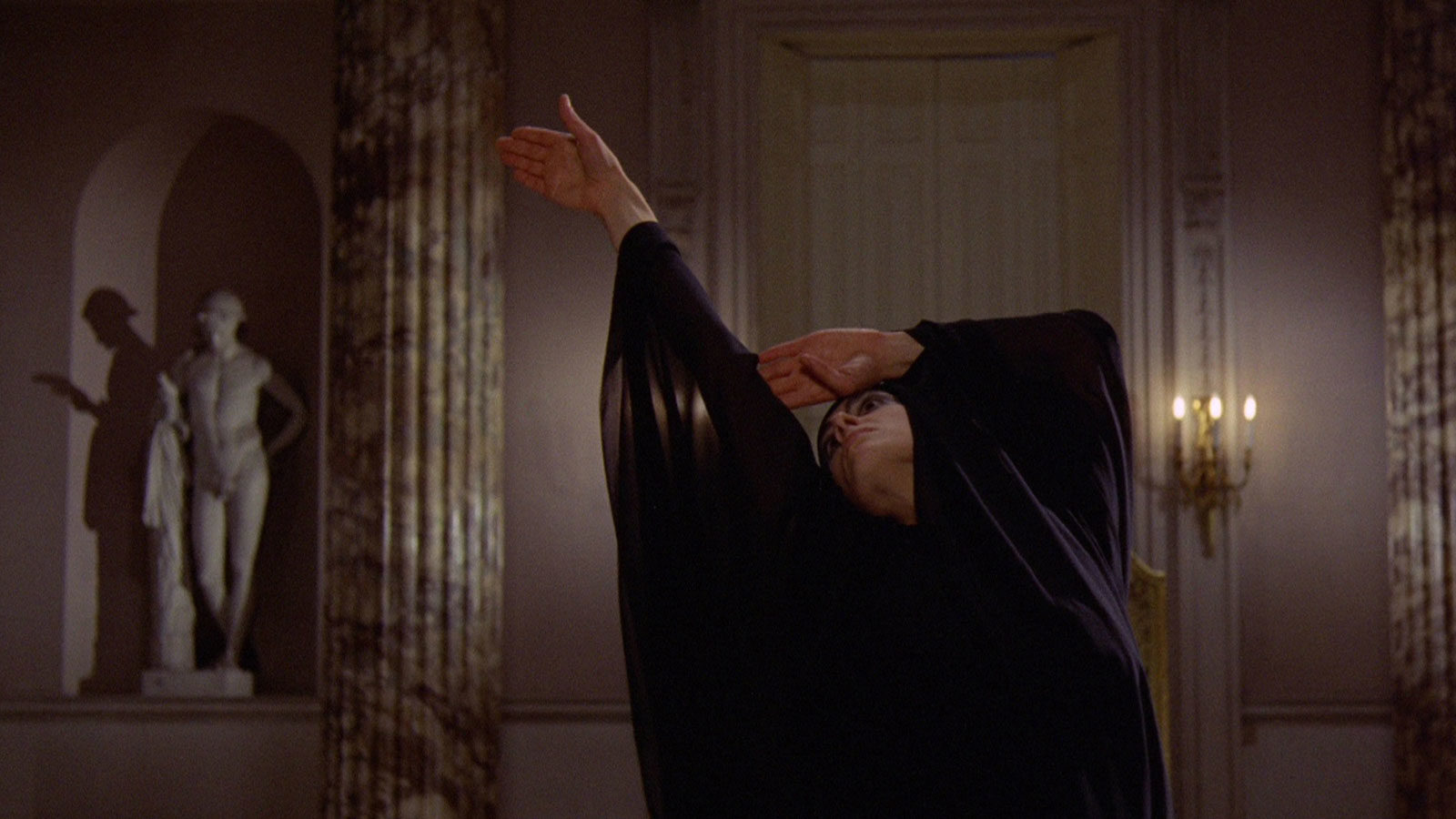
An Interview with Ken Russell
With Women in Love, 42-year-old British director Ken Russell suddenly burst upon the film scene as a director of international importance, and American filmgoers wondered where this considerable talent had been keeping itself all this time. British viewers, however, were not in the least surprised by the craftsmanship that Russell displayed in Women, since for a decade they had been treated to a series of excellent documentaries which Russell had made for BBC-TV. Recently Russell invited me to his favorite London pub, near the place where he was supervising the final editing of his latest film, The Music Lovers, to discuss his career past, present, and future.
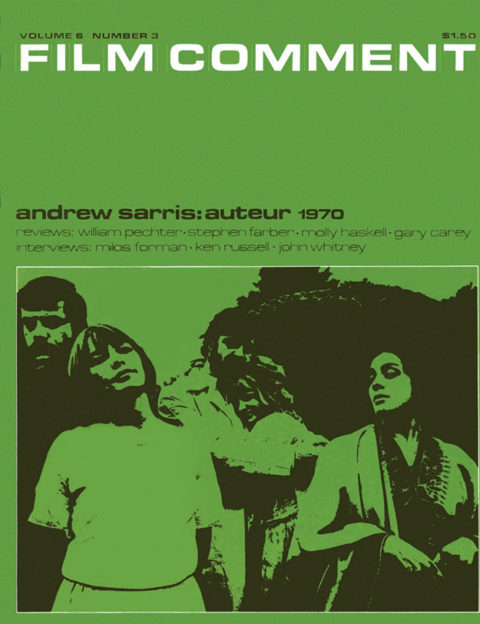
Like John Schlesinger, you broke into films by way of TV. How did you get into TV in the first place?
In 1959 I got the chance to do some 10-minute segments for a TV series called Monitor. Huw Weldon, who is now managing director of BBC-TV, worked on the series too. After awhile I was allowed to make some longer documentary shorts for use on the program. I did one on the dance craze, the guitar craze, and one on pop artists called Pop Goes the Easel. My segment on photographers probably influenced Blow-Up.
Finally I was asked to do some full-length biographies on the lives of great artists of the past: composers like Elgar, Debussy, Bartok. Prokofiev, and Delius; the poet Rossetti, and dancer Isadora Duncan. I did a film in 1964 called French Dressing, a kind of seaside comedy, but it was an ill-conceived project from the start: the chemistry of the characters was wrong and the story never quite jelled. It was a flop, so I continued on in television.
Among all of the TV biographies which you have done, which ones are among your favorites?
Three of the ones I most enjoyed doing are Isadora, The Biggest Dancer in the World [66], A Song of Summer [68], about the composer Delius, and Dance of the Seven Veils [70], which was suggested by the life and music of Richard Strauss.
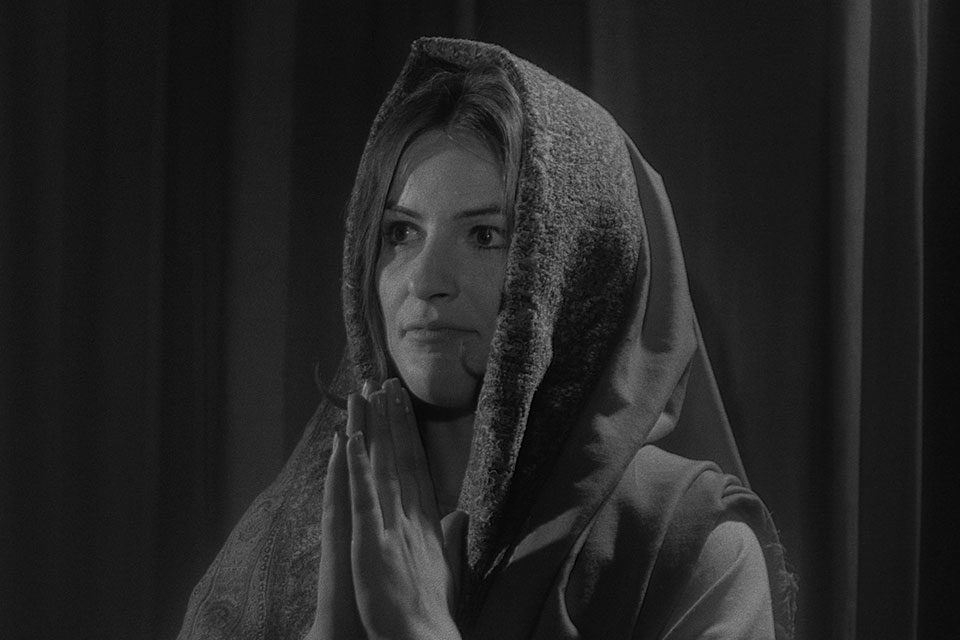
Isadora, The Biggest Dancer in the World
I have seen all of the ones you have named; I admired Karel Reisz’s subsequent film on Isadora Duncan very much, but I must say that I enjoyed your TV version much more than Reisz’s film.
Reisz’s film version used most of the incidents in Isadora’s life that I used, but I managed to tell her story with a little more economy in about half the time that his film runs.
This is partially due to the fact that you ran through the whole of Isadora’s life in a kind of kaleidoscope-newsreel fashion at the beginning of your TV film (à la Citizen Kane) which gave the viewer a capsule view of her life that you could then easily expand as you went through the rest of the story.
And Vivian Pickles, an excellent actress, who had not done many important roles, was perfect as Isadora. Since Isadora’s life was so pathetic and tragic, I tried to lighten the material at times. For example I used the old Betty Hutton recording of “The Sewing Machine” from the 1947 Hollywood film The Perils of Pauline on the soundtrack when Isadora was falling in love with Paris Singer, the sewing machine manufacturer.
Nevertheless your Isadora has some darker tones at certain points than Reisz’s film. For example, you showed that Isadora’s Russian husband was an epileptic and a kleptomaniac and how this complicated their relationship, while the movie Isadora ignored these facts. With your interest in biographies of this kind, how did you wind up doing the film of The Billion Dollar Brain [67]?
I had a contract with Harry Saltzman to film the life of the Russian dancer Vaslav Nijinsky with Rudolph Nureyev in the lead. Then Nureyev decided that he could not play the role of a dancer who was inferior to himself, and the project was off. So I directed the spy film The Billion Dollar Brain for Saltzman instead since at that time he was doing a series of these films hoping to make the Harry Palmer character played by Michael Caine as popular as the James Bond character.
I understand that Nureyev has at last decided to do the role of Nijinsky and that Tony Richardson is now going to make the film. At any rate, Brain flopped like your first film had done, and so it was back to television.
One of the biographies that I did at this time was that of the composer Delius, who spent the last years of his life blind and crippled by syphilis while living in an English country cottage with his faithful wife and his amanuensis. It was a difficult TV film to make since I felt that I didn’t know enough about Delius and his milieu, so I couldn’t formulate just how I wanted to approach the material. I did not feel that way about D.H. Lawrence at all, incidentally. But I went ahead with the Delius biography anyhow, since making films is a voyage of discovery. I used a lot of location shots In the country since Delius’s music deals so often with nature and because he died there. While working in TV I always shot out of doors as much as possible, since the indoor sets always seemed to me to look like sets: four blinking flats with pictures hung on them. I have shot almost all of my TV films outside of a TV studio on location. In general I always disregarded the fact that I was doing them for television, although working in TV has made me partial to big close-ups and I still use them often in motion pictures.
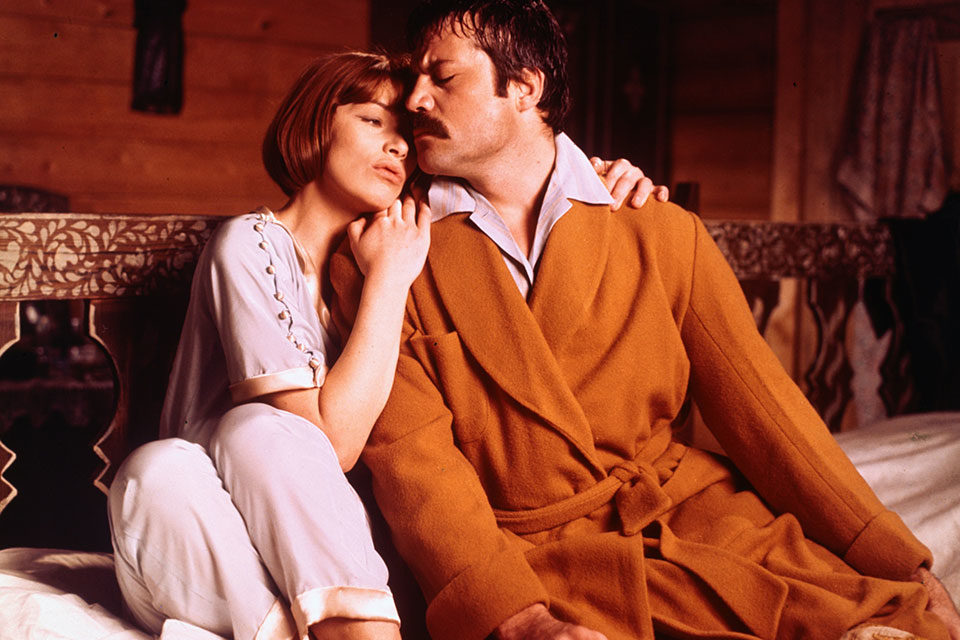
Women in Love
You said that you felt at home working on material from D.H. Lawrence when you filmed Women in Love [69].
I had immersed myself in the book and worked on the script, so that by the time I went on the floor to shoot the film I knew what I wanted. Nevertheless I am a great believer in inventing things on the set. Working in TV you learn how to cut costs and prune down the project to essentials. When you work fast you get a certain spontaneity from your cast and crew and they make suggestions about how to improve a scene during shooting.
I understand that Glenda Jackson, who worked for you both in Women and in The Music Lovers, is particularly good at suggesting things that you can use in a scene.
Glenda Jackson is my kind of actress. Some actresses talk about the character they are playing incessantly—not Glenda; you have a preliminary discussion of the character with her and then she sticks to that throughout the filming. She makes a great many suggestions, and I usually accept about halt of them. I only work with people who understand what I am trying to do because of the short time we have to work. In order to make a period picture on the same budget as a film in a contemporary setting you have to sacrifice something, and I sacrifice time. I assemble around me a cast and crew that can intuit what I want and to whom, therefore, I have to say very little. Glenda is the prime example of the kind of person with whom I like to work.
Most of your work for TV and motion pictures has had a period setting. Why are you drawn to the past for subject matter?
I love period films: the possibility of opening a book into the past fascinates me. You don’t have to worry that every last detail is historically accurate; a lack of total authenticity doesn’t matter; in the end a little roughness is not a bad thing. I generally select period material because all of the stories I do are about the relationships of people to their environment and to each other, and other eternal questions that we are just as concerned about today as people were in the past. Topics of the moment pass and change; besides, one’s feelings toward contemporary topics tends to distort one’s presentation of them. We can be much more dispassionate and objective, and therefore more truthful, in dealing with the past. To see things of the past from the vantage point of the present is to be able to judge what effect they have had on the present.
You said that you worked on the script of Women in Love. Since so many critics commented on how faithful the film is to Lawrence’s novel, could you tell me how much of this fidelity to Lawrence was due to yourself?
The first script was done by an excellent screenwriter, but it had nothing to do with Lawrence. He had the old idea that unless you change something beyond recognition you are not being creative. This attitude is a terrible affront to the original author of the novel, especially if the author in question happens to be a writer like D.H. Lawrence. A second version of the script was done by another screenwriter and it was appalling: at the final fadeout Alan Bates and Jennie Linden were to gallop off into the sunset. At this point l took a hand in writing the script. I used as much of Lawrence’s dialogue as I possibly could. Nearly all of the conversation is verbatim from the novel. For the storyline, I pulled out of the novel’s action the bits that would hang together as a narrative. So I suppose that I am as responsible as anyone for the film’s fidelity to Lawrence.
Was the nude wrestling match between Alan Bates and Oliver Reed your idea then?
The wrestling match was in the novel and I wanted to use it in the same symbolic fashion that Lawrence had used it. At its conclusion Birkin [Bates] says to Gerald [Reed], “We are mentally and spiritually close. Therefore we should be physically close too.” This is not a plea for a homosexual relationship between them. Birkin believes that two men can each get married and yet maintain an intimate relationship with each other that is different from, but which nevertheless complements the heterosexual relationship that each has in marriage. Gerald could not commit himself to Birkin on this level not only because he thought such a relationship unconventional but because he really could not reveal himself or commit himself to anyone. I originally thought of a swimming context for the scene since how else could you explain the two men stripping off for the match? But Oliver Reed said that that setting would be too poetic. He suggested that it should be more of a real physical confrontation between the two men locked in a room sweating and straining, and that is how we did it.
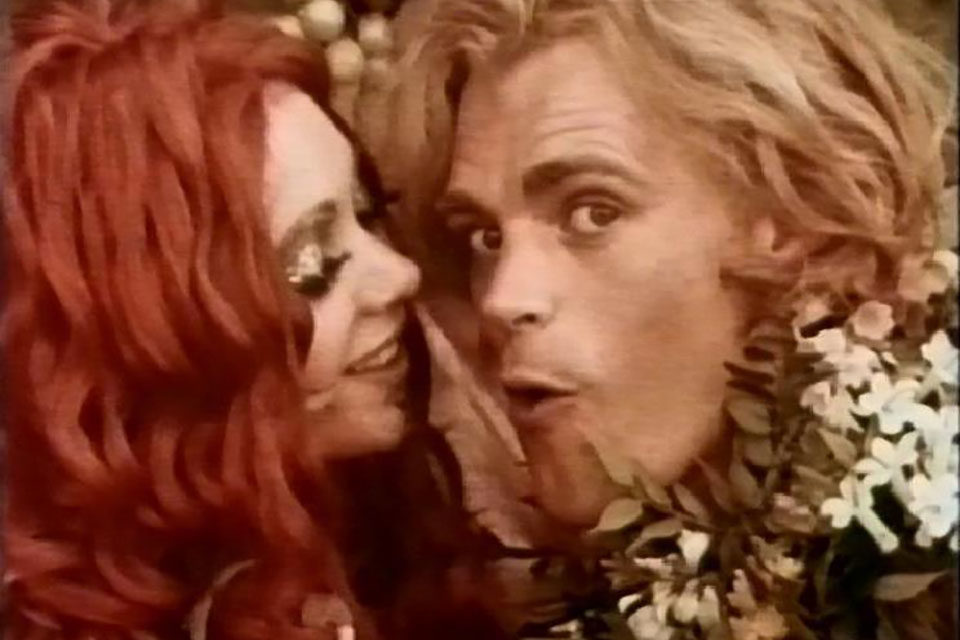
Dance of the Seven Veils
Since Women in Love, as frank as if is, was so well received, were you surprised at the dismay in England caused by your TV film on the life of Richard Strauss, Dance of the Seven Veils?
I saw that television biographies were becoming filled with terrible clichés that had grown out of imitation of my TV films—deification of the artist is wrong; he should be presented as a human being who, despite his faults, managed to create lasting works of art. The telecast began with an announcement that what was to be presented was a harsh and violent personal interpretation of Strauss’s life and work, but one which was nevertheless based on real events. This should have been a sufficient warning to those who might be offended by watching it.
Those who were offended by it took the film much too literally. It was meant to work on a deep symbolic level. For example, in order to get across the fact that Richard Strauss was uninterested in the Second World War because it didn’t touch him personally, I presented a dream sequence in which Strauss is forced to watch his wife raped and his child murdered by the Nazis. Just as a Nazi holds a gun to Strauss’s head the image dissolves into that of his son with a toy gun and then the camera pulls back to show the Strauss family in a kind of Sound of Music Tyrolean setting completely removed from the realities of the war. This is the insulated atmosphere in which Strauss wrote his Alpine Symphony, as if the war didn’t exist.
What about your treatment of Strauss’s capitulation to the Nazi regime? That offended a lot of admirers of his work.
Strauss was one of the most famous people in Germany at that time, and if he had taken a stand against the Nazis this would have had a tremendous effect. I was trying to shock people into a realization of their responsibilities. Strauss thought of himself as an ageless superman. He based his Zarathustra—which has since become identified with Kubrick’s use of it in 2001—on Neitzsche’s conception of the superman. Then in later years when he was out of favor with Hitler he wrote an obsequious letter to Hitler. At this point I have his wife put on him the mask of an old man, for Strauss has finally admitted his weakness and dependence on Hitler’s favor. Later, after the war, when he is conducting the Zarathustra in London after he has been completely exonerated by the allies of having endorsed the Nazi regime, the music swells to a crescendo and I have Strauss rip off the mask of the old man; he is still the crypto Nazi with the superman fantasy underneath the facade of the distinguished elderly composer.
The day alter the program was screened on BBC-TV a motion was introduced in Parliament condemning your version of Strauss’s life and music as vicious, savage, and brutal. Some TV critics suggested that you were trying to increase the limits of what is permissible on television.
The BBC got an enormous number of phone calls after the film was televised, as many for as against. The television audience are all asleep in their armchairs. It’s a good thing to shake them up; even if it’s only as far as the phone. Huw Weldon defended Dance of the Seven Veils when it was shown for 50 members of Parliament, and John Trevelyan, the British film censor, supported the film as well.
To me your Dance of the Seven Veils is the most visually brilliant piece of work you have done so far, especially in the fantasy scenes.
In every film I have made the style has been dictated by the subject. Delius was an austere, restrained film, mainly about three people in a bare, white room. That was the way to do that particular story. Strauss, on the other hand, was a self-advertising, vulgar, commercial man. l took the keynote of the film from the music, a lot of which is bombastic. I also built up the portrait from the man himself; and 95 percent of what Strauss said in the film he actually said.
You even gave him a screen credit for contributing to the dialogue. You are undoubtedly in for more criticism from music lovers for presenting Tschaikovsky as a homosexual in The Music Lovers.
There is a Russian version of Tschaikovsky’s life coming out as well. When l went to United Artists with the idea of doing his life they pointed this out to me and I replied that my approach to the composer’s life was sure to be different from the Russian version. For the thing, the Russians have never admitted that Tschaikovsky was homosexual. I have been quoted as saying that my film is about a homosexual who marries a nymphomaniac. This is a flip way of putting it, but basically it boils down to this, and this is what the film explores. It takes only two years in Tschaikovsky’s life, the period when he was married. This was the turning point in his life. Tschaikovsky himself said that his inner conflicts are there in his music and they are. His Sixth Symphony is tortured and terrible. In one scene in my film Tschaikovsky [Richard Chamberlain] is shown in bed with the rich Vladimir Shilovsky, whose possessiveness helped push Tschaikovsky into thoughts of marriage. Besides he had always longed to have a family. In addition he believed that man was governed by fate. He had written an opera, Eugene Onegin, in which a girl writes love letters to a man who turns her down and thereby he ruins his own life and that of the girl. Tschaikovsky started getting letters from a girl, Antonina Milyukova [Glenda Jackson]; he decided the situation was too much of a coincidence with the story of his opera to be ignored, and so he met and married her. The marriage, of course, was a disaster. As in my television lives of composers, I make a definite connection between the man’s life and his music. The composer-conductor of the film’s music, Andre Previn, has drawn on Tschaikovsky’s music throughout the film, and there is not one piece of music that is there for its own sake. It’s all there to reflect some aspect of Tschaikovsky’s life and personality.
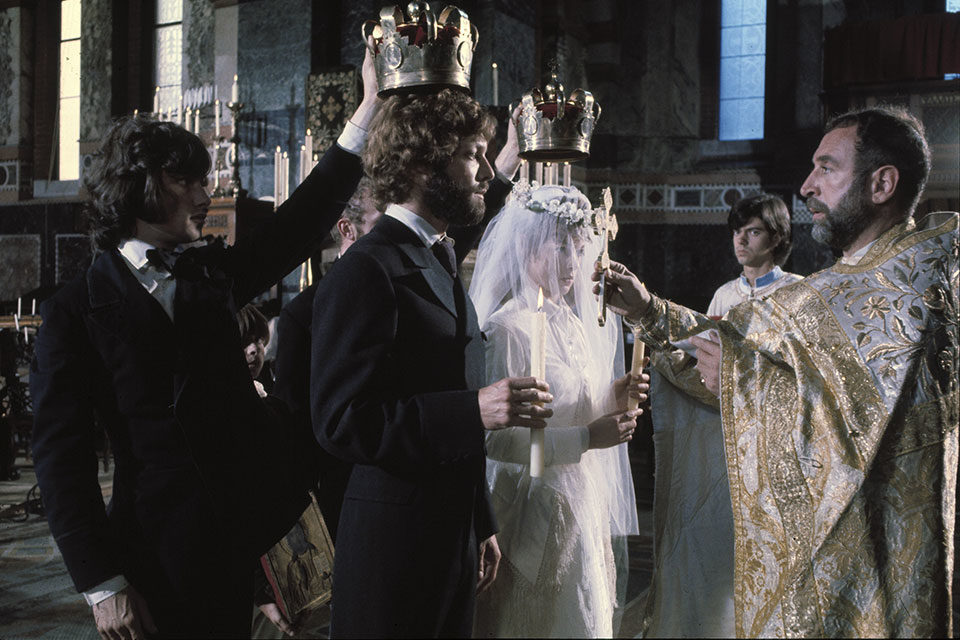
The Music Lovers
What future projects do you have in mind?
I would like to do The Devils, and have done a script based on both Aldous Huxley’s book and John Whiting’s play. I also used the available documentation, but I had to thin it out since it is so vast. It is based on the same historical incident which served as the basis of Kawalerowicz’s 1961 Polish film Mother Joan of the Angels, which I saw about five years ago. A frustrated mother superior in a convent, whom l hope will be played by Glenda Jackson, gets dreamy about a priest. Cardinal Richelieu does not like the priest and has evidence planted on him to discredit him. My version of the story will bring in more of the political background of the period than did the Polish film.
In defending you against the negative criticism of your TV film about Strauss, Huw Weldon said that you happen to be a Roman Catholic and would not set out to offend any religious group in your work. Do you feel that your background as a convert to Catholicism will be a help to you in making The Devils?
Possibly. My Catholic background helps me to distinguish between normal religious practices and the bizarre things attributed to the nuns in The Devils. Since Kawalerowicz is not a Christian, the whole idea of convent life would seem bizarre to him. At any rate, I don’t mind now if I am not able to make the film since I have worked it out shot by shot in my imagination; l can run it in my head any time I want to. Although I must admit a finished film is often very different from the way one has initially pictured it in one’s mind.
Do you intend to adapt any more novels for the screen?
I am interested in Evelyn Waugh’s 1934 novel A Handful of Dust, but I will not attempt to update it to the present as did the recent film of his 1928 novel Decline and Fall. Waugh’s novels are relevant lo the present, and they do not have to have the setting updated to prove it. I would also like to do Graham Greene’s A Burnt-Out Case, which is one of the few novels that Greene has written that has yet to be filmed.
Greene, who has done some of the scripts himself, once told me that the initial script that he does from one of his novels usually has a great deal of the original dialogue from the novel in it; but he deletes most of this as he revises the script and in the end most of the original dialogue is gone. Yet you told me that most of the dialogue in Women in Love is directly from the book. Do you then disagree with Greene’s approach to adapting a novel to the screen?
Not really. If one adapts one’s own novel to another medium, he feels that he’s done it this way once; in the interim it has grown in his mind, since one’s ideas about any subject change and grow over a period of time. But if I adapt something written by someone else to the screen, I am approaching it fresh and want to leave the thing the way it is as much as possible.
I understand that Lesley Hornby—alias Twiggy—has said that she will take out time from her modeling career to do a film with you if the right part turns up.
Yes, and I hope the right part does turn up. If so, she will be the greatest thing to hit the screen since Marilyn Monroe.
I gather that you have achieved total artistic control over your films.
While I was at the BBC I was my own boss, and after Women in Love I was ready to go back to television for good, since I was allowed to act as my own producer on any of my previous films. I find that when someone else if producing I have a battle royal with him most of the time. After one has poured his lifeblood into a project, it is difficult lo accept the fact that someone else is really controlling the project Now that I do have the same artistic freedom in making films that I had in television, I think I will stick with films.



